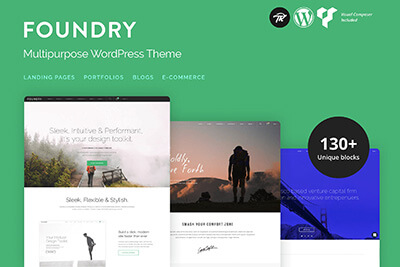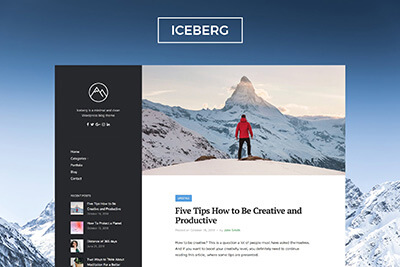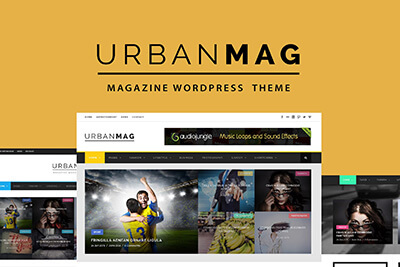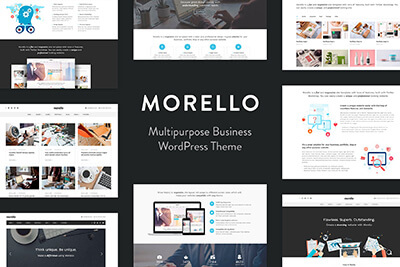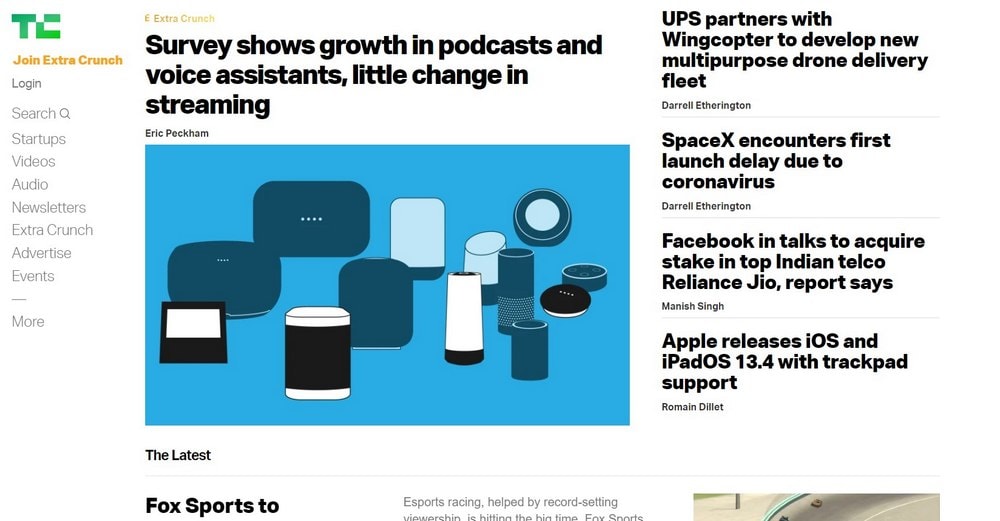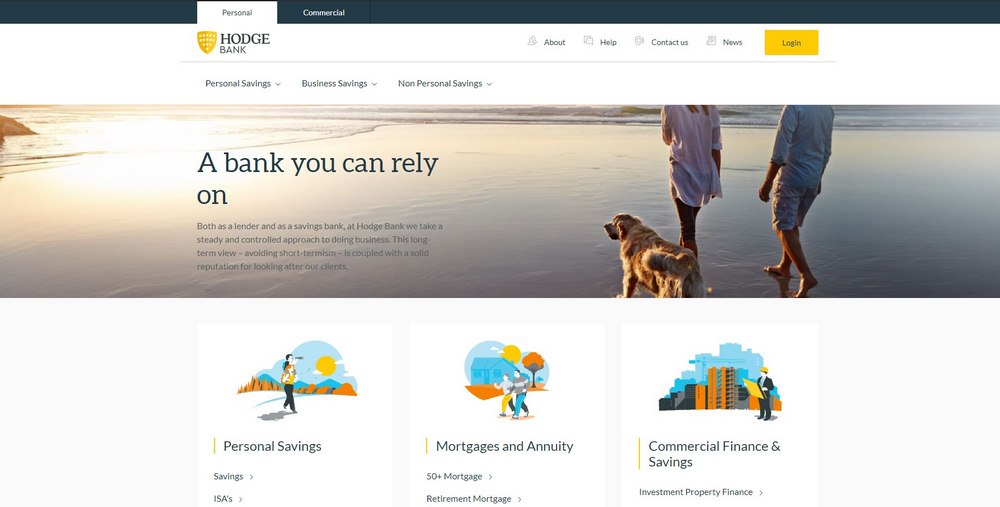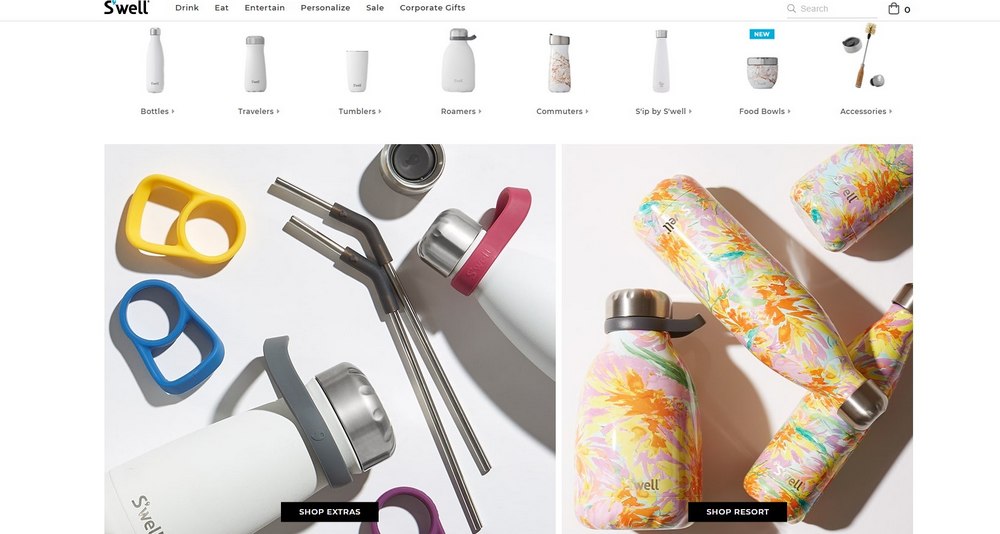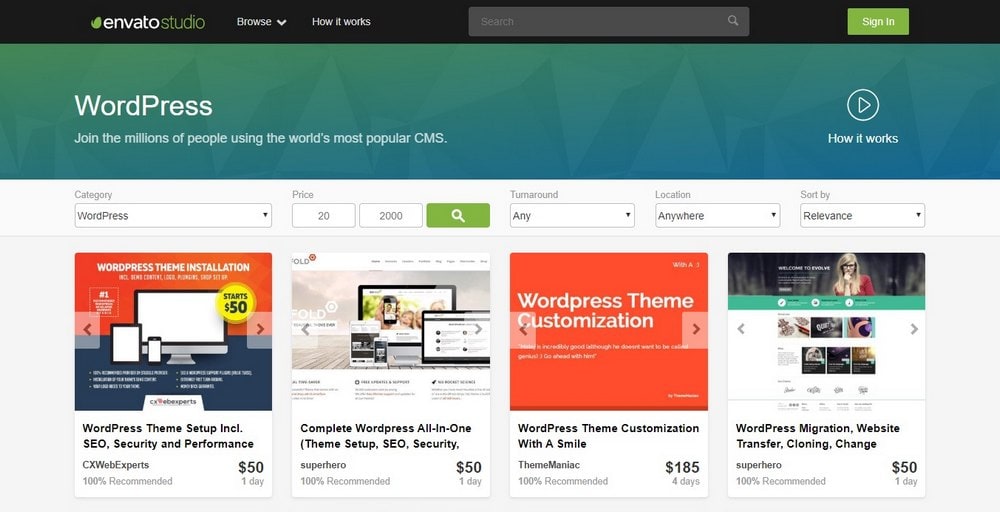WordPress Pros and Cons: Should You Use It?
WordPress is one of the first choices that come up when looking for ways to build a website. You can make many different types of websites using the software. But, is it the right option for your website and business?
In this guide, we look at the pros and cons of WordPress, what kind of websites can benefit from it, and overall help you figure out whether to use WordPress or look for an alternative.
When it comes to making websites, there are so many options out there. You can use website builders, you can hire a web designer or an agency, or even build your own website designs using templates and themes.
WordPress takes a special place on the list of options thanks to its ease of use and versatility. However, it’s not made for everyone. Let’s take a closer look and see what makes WordPress different from the rest.
One Subscription: Everything You Need to Build a Website
Get everything you need to build your next website with one simple subscription. From $16 per month, get unlimited access to nearly 2 million WordPress themes, web templates, fonts, graphics, and photos.
Why Use WordPress?
Ask any WordPress user and they’ll give you a bunch of reasons proving why WordPress is a great platform for building websites.
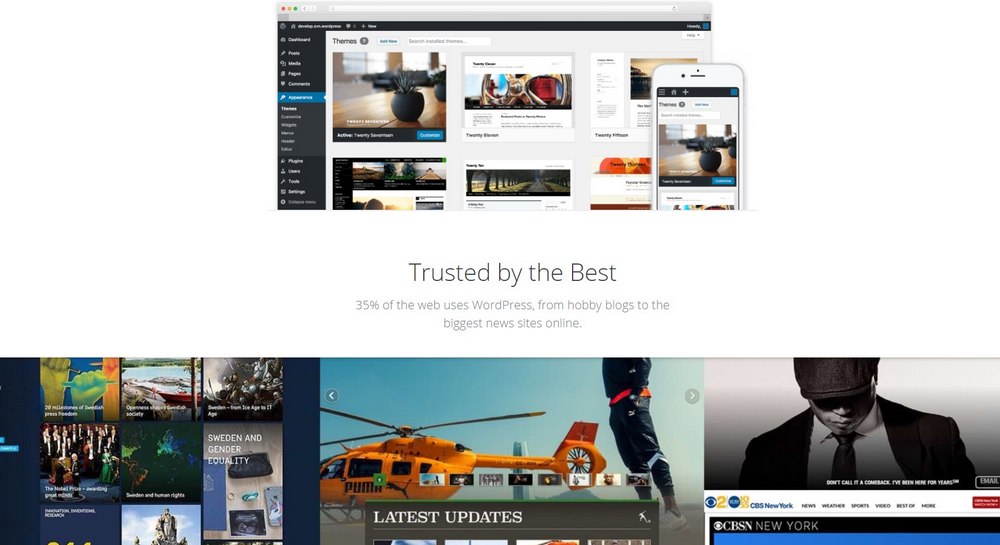
One of the most popular reasons is that it’s free. WordPress software itself is open-source and you can download and use it for free as long as you want.
WordPress is also the most popular content management system (CMS) that powers up more than 35% of the websites on the entire Internet. There are many reputable brands and websites among them like Bloomberg, Rolling Stone, CBS, and even the Swedish government.
However, what makes WordPress great is how it gives you total control over your website. Unlike using website builders hosted by a corporation, when using WordPress you don’t have to follow any rules. You are in control of your website and its content. You can make any kind of website, share any type of content, sell any product, and write about anything you want.
WordPress Website Examples
Another reason to use WordPress is its versatility. You can use WordPress to make many different types of websites.
Blogs and News Websites
WordPress is well-known as a tool for making blogs. But it’s much more than just blogs. The software can handle everything from small personal blogs to magazine websites with dozens of categories like the Vogue magazine and even news websites like TechCrunch and Rolling Stone.
Business Websites
WordPress is a great option for making business websites as well. Whether you’re making a small business website or a website for a giant corporate brand, there are options to match all. The official Hodge Bank website is the perfect example that proves how secure and useful the software can really be.
Online Stores & eCommerce Websites
If you’re building an online store or an eCommerce website promoting a product, you can use WordPress to easily setup a complete online shopping experience with a shopping cart, a checkout system, and payment processing. Just like the website for S’well.
Membership Platforms
Ladybird Education is a great example of a membership website you can make with WordPress. The site is completely powered by WordPress. It lets visitors register accounts and browse books and courses offered by the popular publishing company.
WordPress is capable of making many other types of websites including membership platforms, classified ads sites, online learning sites, app landing pages, SaaS websites, and much more.
Benefits of Using WordPress
In addition to some of the reasons we’ve already pointed out, there are many other benefits to using WordPress.
- It’s Affordable: With so many hosting providers offering web hosting for WordPress sites starting at as low as $3.95 per month, you’ll have plenty of options to make a website with WordPress at an affordable price.
- Easy-to-Use Dashboard: WordPress admin dashboard is very beginner-friendly. You can use it to create posts, manage media files, and customize the design without having expert web design knowledge.
- Expand with Plugins: There are more than 50,000 plugins available on WordPress. You can use them to add more advanced features to your website like payment processing, drag and drop website editors, and more.
- Lots of Theme Designs: With thousands of pre-made WordPress themes, you can setup any kind of website within minutes. No need to hire web designers.
- Easily Optimize for SEO: Plugins like Yoast allows you to optimize your entire WordPress website for search engines without an effort, even if you don’t have any SEO knowledge.
- Better Security: WordPress is also much more secure than most other CMS software. It even has security plugins you can install to protect your website from malware and hackers.
- Freedom and Control: Being able to control your website on your own terms and the freedom it gives you is the best and most valuable benefit of using WordPress.
Downsides to Using WordPress
Of course, there are disadvantages to using WordPress as well.
- Web Hosting Providers: With so many web hosting plans and providers out there, it can be a bit difficult to find one that suits your needs and your budget.
- Involves a Learning Curve: Unlike SaaS platforms, WordPress doesn’t hold your hand through the website setup process. You’ll have to read guides and watch tutorials to learn how to use WordPress.
- Managing the Website: Since you’re in full control of your website, you are also responsible for managing it. This means you have to regularly check your website, update plugins, themes, and setup website backup systems.
- Troubleshooting: From time to time, you’ll come across issues and errors with the WordPress system. This usually happens when installing plugins and uploading themes. WordPress doesn’t offer live chat or phone support. You’ll have to figure out the solutions on your own.
WordPress vs Website Builders
Clearly the benefits of WordPress outweigh the downsides of using the software. But, some of the cons we’ve mentioned can be a deal-breaker for many users.
For example, if you’re not tech-savvy and hate learning about tech stuff, you’ll probably have a horrible time making a website with WordPress.

In such cases, it’s best for you to choose convenience over everything else. That’s where SaaS website building platforms like Squarespace and Wix takes the lead.
When using these platforms, you don’t have to worry about web hosting, installing plugins, or managing system updates. The platform takes care of everything. But at a cost.
You’ll have to follow the rules and terms set by each SaaS company when making a website on their platforms. When they change the rates of pricing plans, you’ll have to pay it to keep your website live. And they don’t offer many options for building larger websites like news sites or online retail stores.
If you’re making a personal website or a portfolio website, a website builder would be a good option. But, WordPress is a much better solution for building bigger and sophisticated websites.
Either way, it’s up to you to decide whether it’s worth it to sacrifice control and freedom over your website for convenience.
Build It Yourself or Hire a Web Designer?
If you’re not keen on learning the ins and outs of WordPress, go through the fun process of building the website and experimenting with different designs, you can always hire an expert.
You can either hire a web designer to code your entire website design from scratch. Or hire someone to setup your WordPress website so you don’t have to learn and do everything by yourself.
The easiest way is to find a freelancer specializing in WordPress. You can find a web designer on platforms like Envato Studio at an affordable rate. They offer to handle all the technical parts of the process like installing WordPress, setting up themes, doing the initial SEO, and more. So that you can save time and have your website up and running in no time. And take care of the business side of your website.
Should You Use WordPress?
To sum up, using WordPress really depends on how much effort you’re willing to put up for the process. Because it takes a bit of learning and practice to build a website with WordPress.
If you’re willing to invest time to learn, using WordPress to build a website by yourself is the best approach. In the long run, it will help you understand how your website works and manage it yourself without any outside help.
WordPress is also more flexible and lets you upgrade and add additional features to your website as you grow. This alone makes the CMS a better option than online website builders.
Explore our blog for more guides on WordPress. You can also check out our exclusive themes collection to get 60+ premium themes for the price of one.
Looking for WordPress hosting? We use Kinsta. They offer world-class WordPress hosting, built to keep your website fast, secure, and always online.

